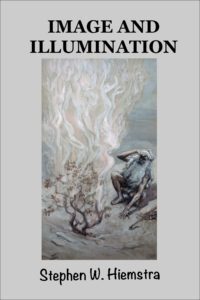Illumination

And God said, Let there be light,
and there was light. (Gen 1:3)
By Stephen W. Hiemstra
The study of the nature of being is ontology. What is the nature of being presented in the Bible? God creates and classifies. After creating the heavens and the earth, God creates light and declares it to be good. Light is a form of energy and a symbol of morality. Declaring light to be good binds its physical status to its moral status making them indistinguishable, much like the unity of heart and mind in Hebrew anthropology discussed earlier.
This unity of the physical status and moral status contrasts with the materialist perspective. A materialist disembodies moral purpose from physical being, much like Greek anthropology separates heart and mind. Light cannot be good because by definition physical and moral status are separate lines of inquiry. Even the idea of light illuminating is not assumed because illumination requires an observer. Light cannot be good or illuminate because the materialist does not believe in the existence of a divine observer.
Light as a Moral Symbol
Light as a symbol of righteousness can be found throughout the Bible. The Book of Job offers a transparent example:
There are those who rebel against the light, who are not acquainted with its ways, and do not stay in its paths. The murderer rises before it is light, that he may kill the poor and needy, and in the night he is like a thief. The eye of the adulterer also waits for the twilight, saying, No eye will see me; and he veils his face. (Job 24:13-15)
Here not only are light and daylight described as symbols of righteousness, night is treated as an evil time and being veiled the act of a thief—note the subtle relationship to the law. This light motif extends even to a description of the law. The psalmist writes: “The precepts of the LORD are right, rejoicing the heart; the commandment of the LORD is pure, enlightening the eyes.” (Ps 19:8) As the creator of light, God himself is seen as inherently good.
Human Nature
What then is our nature? As life itself is inherently good as all of God’s creation, we have been created sinless in the image of God. God set us in a garden to tend it and gave the animals names. When we focus on God’s image, our nature is to seek to be more like God in all that we are and do. But because of sin, however, we have rebelled, become tarnished, and incompletely mirror God’s image.
Our sinless creation ontologically bestows on us the potential for redemption, suggesting that God anticipated the need for redemption in creation. If this were not so, then we could not be redeemed from sin. Thus, while sin runs deep in our nature because of original sin, the goodness with which God created us runs deeper.
In some sense, the transfigured Christ—“And he was transfigured before them, and his face shone like the sun, and chis clothes became white as light.” (Matt 17:2)—sparkled because of his sinless nature, visibly displaying our own created potential to be a sinless image of God. In our resurrected bodies, I suspect that we will all sparkle basking in the light of God himself, the light of lights.
Law Extends Creation
The moral hue of creation is extended in the giving of the law., which defines morality in terms of our relationship to God (commandments one to four) and our relationship to one another (five to ten):
1. You shall have No other gods before Me.
2. You shall Not make for yourself a Carved Image
3. You shall Not take the Name of the LORD your God in Vain
4. Remember the Sabbath day, to Keep it Ħoly
5. Ħonor your Father and your Mother
6. You shall Not Murder
7. You shall Not commit Adultery
8. You shall Not Steal
9. You shall Not Bear False Witness against your Neighbor.
10. You shall Not Covet (Exod 20:3-17)
This focus on defining relationship implies that creation itself worked towards or engendered community as an extension of the divine image. The concept of image can be seen as assuming an observer, much like speech assumes someone is listening. This is why the commandments can be understood both as defining the holy community and outlining its spiritual boundaries between those who honor the law and those who do not.
A director that I know once published a reorganization chart that only included the people that he wanted to promote. The relationship of his friends with the remainder of the agency appeared nowhere in the chart. Left in the dark by the chart, people wandered the halls for weeks trying to figure out who they now worked for. Law need not enlighten or bless those subject to it.
In this example, the reorganization chart blessed only the lawmaker and his friends, unlike the Ten Commandments that blessed relationships and those that honor them, as the Psalmist writes:
Blessed is the man who walks not in the counsel of the wicked, nor stands in the way of sinners, nor sits in the seat of scoffers; but his delight is in the law of the LORD, and on his law he meditates day and night. (Ps 1:1-2)
By blessing all who honor the law, God enlightens our hearts and minds with tongues of fire, creating a divine community called the church (Acts 2:3).
Illumination
Also see:
The Who Question
Preface to a Life in Tension
Other ways to engage online:
Author site: http://www.StephenWHiemstra.net
Publisher site: http://www.T2Pneuma.com
Newsletter: https://bit.ly/Mem_2022
The post Illumination appeared first on T2Pneuma.net.



